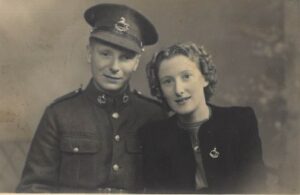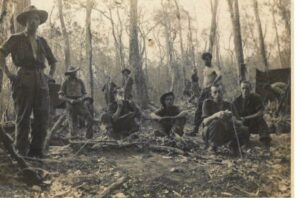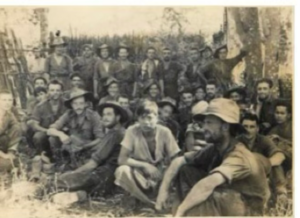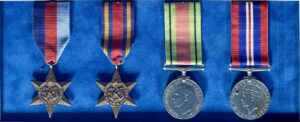VE Day’s 80th anniversary, commemorating the end of the Second World War in Europe, is to be celebrated on Thursday 8th May with a wide variety of events taking place on Merseyside.
As is commonly the case, VJ Day, August 15th, the day on which the Second World War in the Far East ended, can frequently be a sideshow.
Marking VE Day will be done over an extended bank holiday weekend, whereas VJ Day’s events will be concluded in a single day.
The moniker of the ‘forgotten army’ is a label given to Fourteenth Army, the large, multi-national force that battled against Japanese troops in horrific circumstances. It would appear fitting that their endeavour would be less well heralded than that of their Europe-based cousins.
Within the ranks of Fourteenth Army were many Merseyside men, serving in local regiments following the outbreak of war.
Roy Wheeler was one such man. He was born in Neston on the Wirral in 1919. Roy attended Wirral Grammar School, leaving at 15, and secured an apprenticeship as a joiner. His apprenticeship was to be rudely interrupted by the outbreak of the Second World War.

Rather understatedly he said that he was “not very happy” when he learned that Britain was at war with Germany, particularly given that the 20-year-olds would be the first getting called-up.
A week later, Roy had received his own calling-up papers and was suddenly no longer a final year apprentice joiner, but a private in the 14th Battalion King’s (Liverpool) Regiment of the British Army soon to be heading to Burma, now called Myanmar, to fight the Japanese.
The decision to take the fight to the Japanese in Burma was due to a political exchange between Franklin Roosevelt and Winston Churchill.
The military historian, Dr Robert Lyman, says that: “For America, it was important that China remained in the war.
“If Chinese troops left Burma, then around 1 million more Japanese troops would become available to fight the Americans in the Far East.”
Churchill, somewhat reluctantly, agreed to back the Burma campaign in return for American support in the Mediterranean.
Roy became a member of the Chindits, who took their name from a corrupted version of the word chinthe, meaning lion in Burmese. They were a special forces unit created by Brigadier Orde Wingate.

Wingate believed that anybody could be turned into a special forces soldier, and formed his Chindits as a long-range penetration group. This essentially meant that they would operate behind enemy lines, blowing up railway tracks, supply lines and generally causing havoc to the enemy.
Some ten months were then spent training Roy and his comrades. Training was hard, as so was the discipline. Roy saw men flogged for stealing rations. With rations being in short supply, theft of rations was deemed a serious offence.
The men had been briefed on what to expect, as Roy explains, “We were going to go in with mules. We’d either be marching in or taken by glider.
“We realised we had a job to do and that was it.”
Carrying his Lee Enfield rifle, Roy was flown into Burma and met by thick, hilly jungle that had to be hacked through, before marching 10 to 15 miles a day.
As Dr Lyman explains, “[Burma] is a hard place to fight a war.
“There’s lots of jungle, lots of mountains, lots of flat plains.”
The Chindits would employ hit and run tactics, putting up roadblocks and destroying any bridges that they came across.

Sadly, their bravery and sacrifice was wasted. The soldiers themselves, fought manfully, but were “asked to do the impossible”, according to Dr Lyman.
“I take my hat off to the Chindits’ courage and bravery,” he said.
“They were sent off to do something that had very little chance of success.”
Roy became involved in the defence of a landing zone named Blackpool. Overlooking a main road and railway, the Chindits would bombard the positions from their slit trenches, to stop the Japanese from using them, until reinforcements forced the Chindits to withdraw.
In his understated way again, Roy described Japanese infantry attacks. He said, “They were pretty grim. We were a hit and run brigade so we couldn’t take prisoners.
“We marched for about 17 miles with our wounded as we made our way out. We had a lot of casualties, there weren’t many of us left.”
The operation had been ongoing for five months by this point, with the Chindits relying on airdrops for their supplies. At this time, Roy’s jungle sores on his feet were bad enough for him to be extracted. A week later, the whole operation was over.
The sores on Roy’s feet kept him in hospital for three weeks. Even on his return home, his feet would still trouble him, until a doctor of tropical diseases provided him with a cure, which involved bathing his feet in methylating spirits.
Jungle sores were not Roy’s only ailment while away with the Army. He contracted malaria three times, however the tablets given to the troops before going into Burma reduced the symptoms.
Incidentally, this wasn’t the last time he would be struck down by malaria, as his daughter, Sandra, explains, “When he was in his 70s he was quite poorly and it turned out he had a recurrence of malaria all those years later.

“Malaria never leaves your body and he suffered another bout 50 years after his last.”
Sandra says that, while she was too young to fully understand the impact of the war on her father, he seemed to just get on with life after returning home.
“The war didn’t seem to have any effect on him, to the best of my knowledge.
“He didn’t really talk much about his time in India or Burma, though,” she said.
Returning home in one piece after fighting in a war, Roy was somewhat less fortunate while at work one day. “He cut the tip of his finger off at work, and got £75 compensation. He was worried he wouldn’t be able to play the saxophone again!”
Not every serviceman or woman was so fortunate when they returned home. Mark Cann, director of the Burma Star Memorial Fund, explains that the Burma Star Association, the forerunner to the current Memorial Fund, was established to help people “looking to pick up their lives” after the war.

“The Burma Star Association formed a network of branches throughout the country that enabled Burma Veterans to socialise and look out for each other.
“These Branches would hold all kinds of events most of which included family members and maintained the tight bond of togetherness that the Fourteenth Army had,” he said.
The fighting to reclaim Burma was vicious, making groups such as the Burma Star Association vital as normality returned.
For Roy, he was able to come back largely unscathed and into the loving embrace of his family to resume his pre-war life. Even with all that he experienced, he said “I’m proud that I was a Chindit.”
Featured image: Chris Watson, MNL










